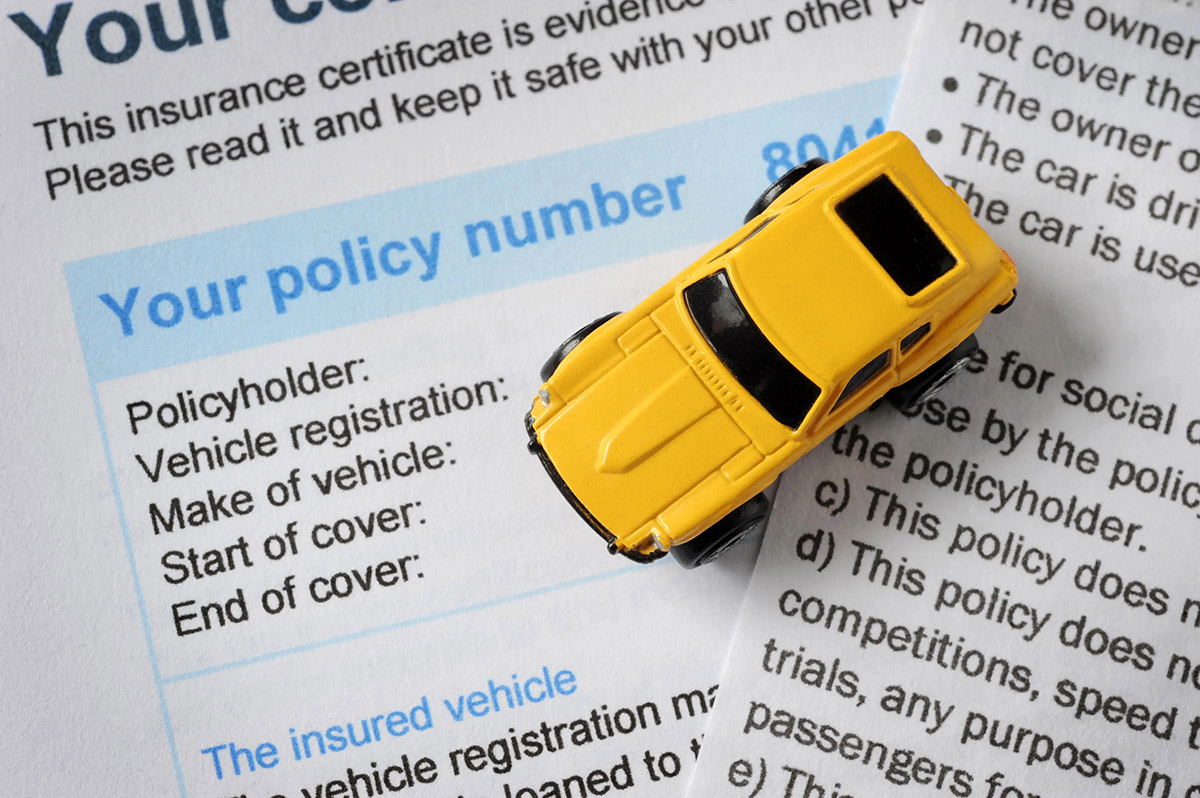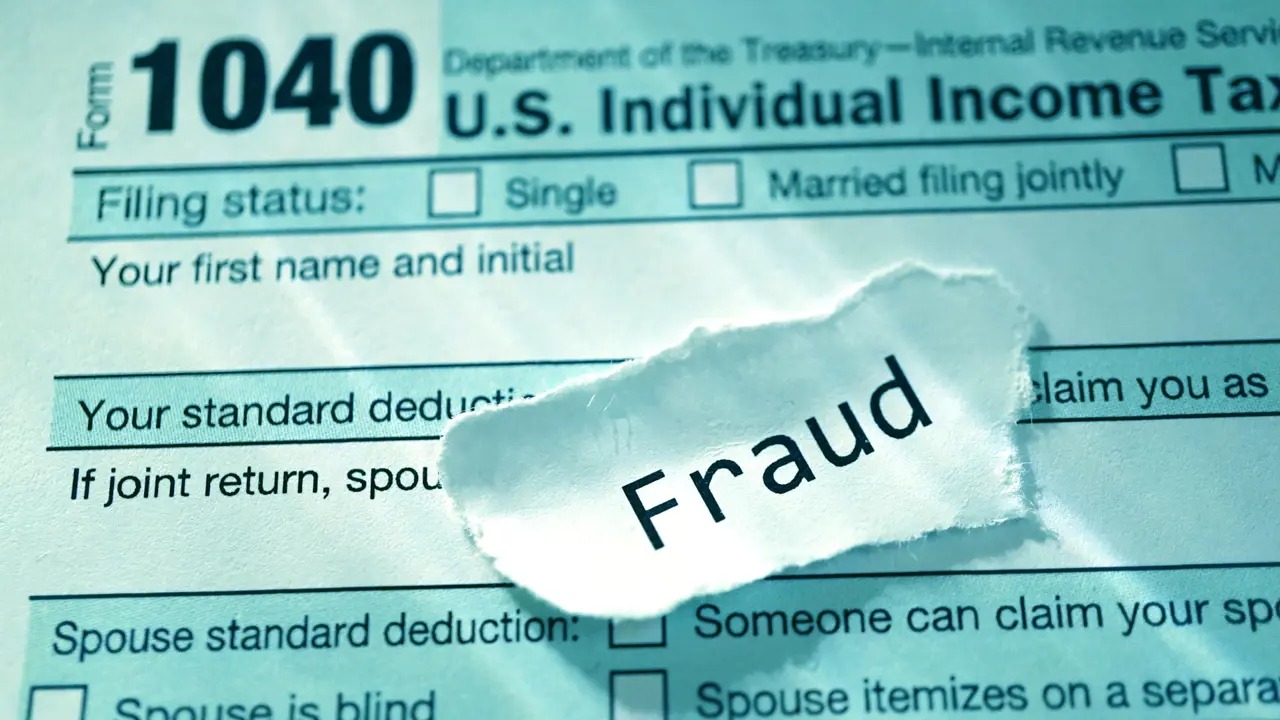Home>Finance>How Do Insurance Companies Find Out About Tickets?


Finance
How Do Insurance Companies Find Out About Tickets?
Published: November 16, 2023
Discover how insurance companies uncover tickets and stay informed about your driving record. Gain insights on the finance aspect of ticket reports.
(Many of the links in this article redirect to a specific reviewed product. Your purchase of these products through affiliate links helps to generate commission for LiveWell, at no extra cost. Learn more)
Table of Contents
- Introduction
- What Information Do Insurance Companies Have Access To?
- How Insurance Companies Obtain Ticket Information
- Government Agencies and Insurance Companies
- How Long Do Tickets Affect Insurance Rates?
- Can Insurance Companies Raise Rates Without a Ticket?
- How to Minimize the Impact of Tickets on Insurance Premiums
- Conclusion
Introduction
Insurance companies play a crucial role in our lives by providing financial protection against potential risks. One of the factors that insurance companies consider when assessing the risk associated with an individual is their driving record. Traffic violations, such as speeding tickets or accidents, can have a significant impact on insurance premiums. But how do insurance companies find out about these tickets? In this article, we will delve into the methods insurance companies use to obtain ticket information, the relationship between government agencies and insurance companies, and how long tickets can affect insurance rates.
Insurance companies have access to a variety of information that helps them evaluate a person’s risk profile. This includes information about a person’s driving history, including any traffic violations or accidents they may have been involved in. By analyzing this data, insurance companies can determine the likelihood of an individual being involved in future accidents. Understanding how insurance companies obtain this ticket information is important to comprehend the impact it can have on your insurance premiums.
What Information Do Insurance Companies Have Access To?
Insurance companies have access to a wide range of information that helps them make informed decisions when providing coverage and determining insurance premiums. Specifically, in relation to tickets and driving violations, insurance companies can access several sources of information:
- Motor Vehicle Records (MVR): Insurance companies can retrieve information from state motor vehicle departments, which keep detailed records of individuals’ driving histories. These records include traffic violations, accidents, license suspensions, and points on a driver’s license. MVRs provide insurance companies with comprehensive data on an individual’s driving habits and their overall risk profile.
- Insurance Industry Databases: Insurance companies also have access to industry-wide databases that collect and share information about individuals’ driving records. These databases allow insurers to exchange data and identify potential policyholders with poor driving histories.
- Third-Party Reporting: Insurance companies may also receive ticket information through third-party reporting systems. Some municipalities have agreements with insurance companies to provide ticket data, ensuring that insurance companies are promptly informed of any violations.
It’s important to note that insurance companies have legal access to this information as it is considered in the public interest to promote safety on the roads. This access allows insurers to evaluate the risk associated with each policyholder accurately. By assessing an individual’s driving history, insurance companies can adjust premiums accordingly to reflect a person’s risk profile.
Understanding what information insurance companies have access to underscores the importance of maintaining a clean driving record. Traffic violations such as speeding tickets, reckless driving, or DUIs can negatively impact your insurance rates. By practicing safe and responsible driving habits, you can reduce the risk of receiving tickets and maintain affordable insurance premiums.
How Insurance Companies Obtain Ticket Information
Insurance companies employ various methods to obtain ticket information and stay updated on their policyholders’ driving records. These methods include:
- Motor Vehicle Records (MVR) checks: Insurance companies regularly request MVR checks from state motor vehicle departments. These checks provide detailed information about an individual’s driving history, including any traffic violations or accidents they may have been involved in. By reviewing MVRs, insurance companies can assess an individual’s risk profile and adjust premiums accordingly.
- Data-sharing agreements: Insurance companies often have agreements with third-party sources that provide them with ticket information. These agreements can include partnerships with law enforcement agencies, court systems, and other government entities. Through these data-sharing agreements, insurance companies receive timely updates on ticket records and driving violations.
- Insurance industry databases: As mentioned earlier, insurance companies participate in industry-wide databases that facilitate the exchange of information. These databases allow insurers to share ticket information and alert each other about policyholders’ driving violations. This information plays a crucial role in determining insurance premiums.
It is important to note that insurance companies cannot access ticket information in real-time. There might be a lag between when a violation occurs and when it appears on a person’s driving record. However, insurance companies typically prioritize staying updated on their policyholders’ driving records to ensure accurate assessment of risk and appropriate premium adjustments.
It’s worth mentioning that insurance companies primarily focus on major violations or patterns of unsafe driving behavior. While a minor parking ticket may not significantly impact your insurance rates, more serious infractions like speeding, reckless driving, or DUIs can result in higher premiums or even policy cancellations. Therefore, it is crucial to maintain a clean driving record and drive responsibly to avoid negative consequences on your insurance coverage.
Government Agencies and Insurance Companies
Government agencies and insurance companies have a symbiotic relationship when it comes to sharing information related to driving violations. While government agencies are responsible for enforcing traffic laws and issuing tickets, insurance companies rely on this information to assess an individual’s risk profile and determine appropriate premiums. Here’s how these two entities collaborate:
- Law enforcement agencies: When a driver receives a ticket for a traffic violation, the information is recorded by the law enforcement agency responsible for enforcement. This data is then reported to the appropriate government agency, usually the Department of Motor Vehicles (DMV), which maintains the individual’s driving record. Insurance companies have access to this information through data-sharing agreements with the DMV or specific state motor vehicle departments.
- Court systems: In some cases, traffic violations may require a court appearance or payment of fines. Insurance companies can gain access to this information through court records. Data-sharing agreements, similar to those with law enforcement agencies, enable insurance companies to receive updates on court convictions or plea bargains related to driving violations.
- Department of Motor Vehicles (DMV): The DMV plays a crucial role in facilitating the exchange of information between government agencies and insurance companies. Insurance companies regularly request MVRs from the DMV to obtain up-to-date information about policyholders’ driving records, including any tickets or violations. These records are vital for insurers to accurately assess risks and determine appropriate insurance premiums.
The collaboration between government agencies and insurance companies highlights the importance of maintaining accurate and updated driving records. Traffic violations not only have legal consequences but can also lead to increased insurance premiums or policy cancellations. It is crucial to understand that insurance companies rely on the data provided by government agencies to assess an individual’s risk profile when providing coverage. Therefore, it is in a driver’s best interest to drive responsibly, follow traffic laws, and avoid violations that can have long-term consequences on their insurance coverage.
How Long Do Tickets Affect Insurance Rates?
When it comes to the impact of tickets on insurance rates, the duration can vary depending on the severity of the violation and the insurance company’s specific policies. Generally, tickets can affect insurance rates for a period of three to five years. During this time, the violation remains on the policyholder’s driving record and can result in higher premiums. However, it is essential to understand that each insurance company may have slightly different guidelines and criteria for rate adjustments.
Minor traffic violations, such as parking tickets or non-moving violations, may not have a significant impact on insurance rates. These types of violations typically do not indicate a pattern of unsafe driving and are less likely to result in rate increases. However, more serious violations, such as speeding tickets, reckless driving, or DUIs, can lead to substantial premium hikes. These violations indicate a higher level of risk and demonstrate potentially unsafe driving behavior.
Insurance companies assess the impact of tickets on insurance rates based on several factors, including the number of violations within a specific timeframe, the severity of the violations, and the policyholder’s overall driving record. Multiple tickets or serious violations can result in higher rate increases, while a single minor violation may have a smaller impact.
It is worth noting that the impact of a ticket on insurance rates is not permanent. As time passes and the violation ages, its influence on insurance premiums diminishes. After the typical three to five-year period, insurance companies may no longer consider the violation when determining rates. However, it is important to consult with your specific insurance provider for accurate information regarding their policies on ticket duration and rate adjustments.
While tickets can have a temporary impact on insurance rates, it is crucial to focus on maintaining a clean driving record overall. Safe and responsible driving habits not only contribute to your overall safety on the road but can also help you avoid unnecessary rate increases and keep your insurance premiums affordable.
Can Insurance Companies Raise Rates Without a Ticket?
Yes, insurance companies can raise rates even without a ticket. While traffic violations are a common factor that can lead to increased insurance premiums, they are not the sole determinant. Insurance companies consider various factors when assessing risk and setting insurance rates for individuals. These factors include:
- Claims history: Insurance companies take into account a policyholder’s claims history when determining rates. If you have a history of filing multiple claims, regardless of whether they were your fault or not, it may result in higher premiums.
- Driving record: Even without a ticket, insurance companies evaluate your driving record for accidents or previous violations. History of accidents or unsafe driving habits can lead to increased premiums as it is seen as a potential risk factor.
- Location: The area where you reside can also impact your insurance rates. If you live in an area with a higher frequency of accidents or higher crime rates, insurance companies may increase your premiums to reflect the increased risk.
- Insurance score: Insurance companies may use an insurance score, which is based on various factors including credit history and other risk-related data. If your insurance score indicates a higher risk profile, it can result in higher premiums.
Aside from these factors, insurance companies also take into account general market trends and actuarial calculations when determining rates. Insurance is a business of evaluating risk, and any factor that increases the perceived risk of a policyholder can result in higher premiums.
It is important to note that insurance companies must comply with specific regulations and guidelines set by insurance regulatory bodies. These regulations vary by jurisdiction and may limit the extent to which insurance companies can increase rates without valid reasons, such as traffic violations or claims history.
To ensure you are getting the best possible rates, it is advisable to regularly review your policy and compare quotes from different insurance providers. Additionally, practicing safe driving habits and maintaining a clean driving record can help you avoid unnecessary rate increases, regardless of whether you have received a ticket or not.
How to Minimize the Impact of Tickets on Insurance Premiums
Receiving a traffic ticket can have a negative impact on your insurance premiums. However, there are steps you can take to minimize the impact and potentially reduce the increase in your insurance rates. Here are some strategies to consider:
- Defensive driving course: Completing a defensive driving course can have multiple benefits. Not only does it improve your driving skills and knowledge of traffic laws, but it can also show your insurance company that you are committed to becoming a safer driver. Some insurance companies offer discounts to policyholders who successfully complete such courses.
- Traffic school or ticket dismissal: In some cases, you may have the option to attend traffic school or take other measures to have the ticket dismissed. If successful, this can prevent the ticket from appearing on your driving record, thus avoiding potential rate increases.
- Shop around for insurance: If your current insurance provider significantly increases your rates due to a ticket, it may be worthwhile to explore other insurance options. Different insurance companies have varying guidelines and policies when it comes to rate adjustments. Shopping around and obtaining quotes from different providers can help you find a more affordable option.
- Consider higher deductibles: Increasing your deductibles can lower your insurance premiums. However, it is important to carefully evaluate your financial situation and determine if this is a feasible option for you. Higher deductibles mean you will be responsible for a larger portion of any damages or losses in the event of a claim.
- Improve your credit score: While not directly related to tickets, maintaining a good credit score can have a positive impact on your insurance premiums. Insurance companies often use credit-based insurance scores as a factor in determining rates. Paying bills on time, reducing debt, and monitoring your credit report can help improve your credit score and potentially lower your premiums.
It is important to note that these strategies may not completely eliminate the impact of a ticket on your insurance premiums. However, they can help mitigate the increase and potentially provide some cost savings. Additionally, practicing safe driving habits and avoiding future tickets can help improve your driving record over time, which may lead to lower premiums in the future.
Remember, each insurance company may have different policies and guidelines when it comes to rate adjustments. It is always a good idea to reach out to your insurance provider directly to discuss your specific situation and explore any available options to minimize the impact of tickets on your insurance premiums.
Conclusion
Understanding how insurance companies find out about tickets and the factors that influence insurance premiums is essential for every driver. Insurance companies have access to various sources of information, including motor vehicle records, industry databases, and data-sharing agreements to obtain ticket information. Government agencies, such as law enforcement, court systems, and the Department of Motor Vehicles, play a crucial role in facilitating the exchange of information between insurance companies and managing driving records.
Tickets can have a significant impact on insurance rates, with the duration of the effect typically ranging from three to five years. However, insurance companies can also raise rates without a ticket, considering factors like claims history, driving record, location, and insurance scores. Therefore, responsible driving habits, maintaining a clean driving record, and practicing safe driving are crucial for minimizing the impact of tickets on insurance premiums.
To minimize the impact of tickets on insurance premiums, consider options like completing defensive driving courses, attending traffic schools, shopping around for insurance, considering higher deductibles, and improving your credit score. These strategies can help mitigate the increase in premiums and potentially provide cost savings.
In conclusion, driving responsibly, adhering to traffic laws, and avoiding violations are paramount not only for your safety on the road but also for maintaining affordable insurance premiums. By understanding the processes involved and taking proactive steps, you can navigate the impact of tickets on your insurance rates effectively and ensure long-term financial stability and peace of mind.














